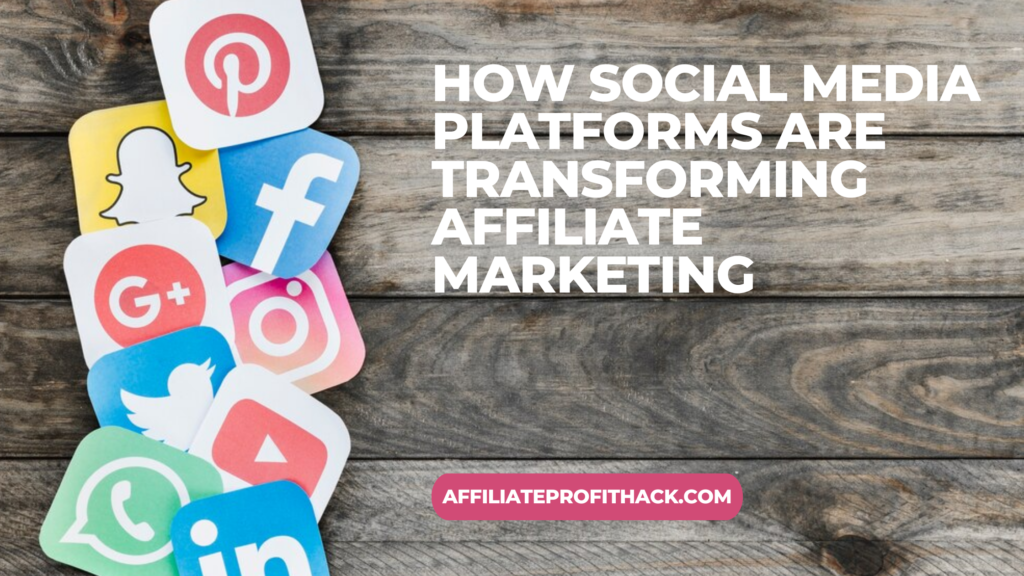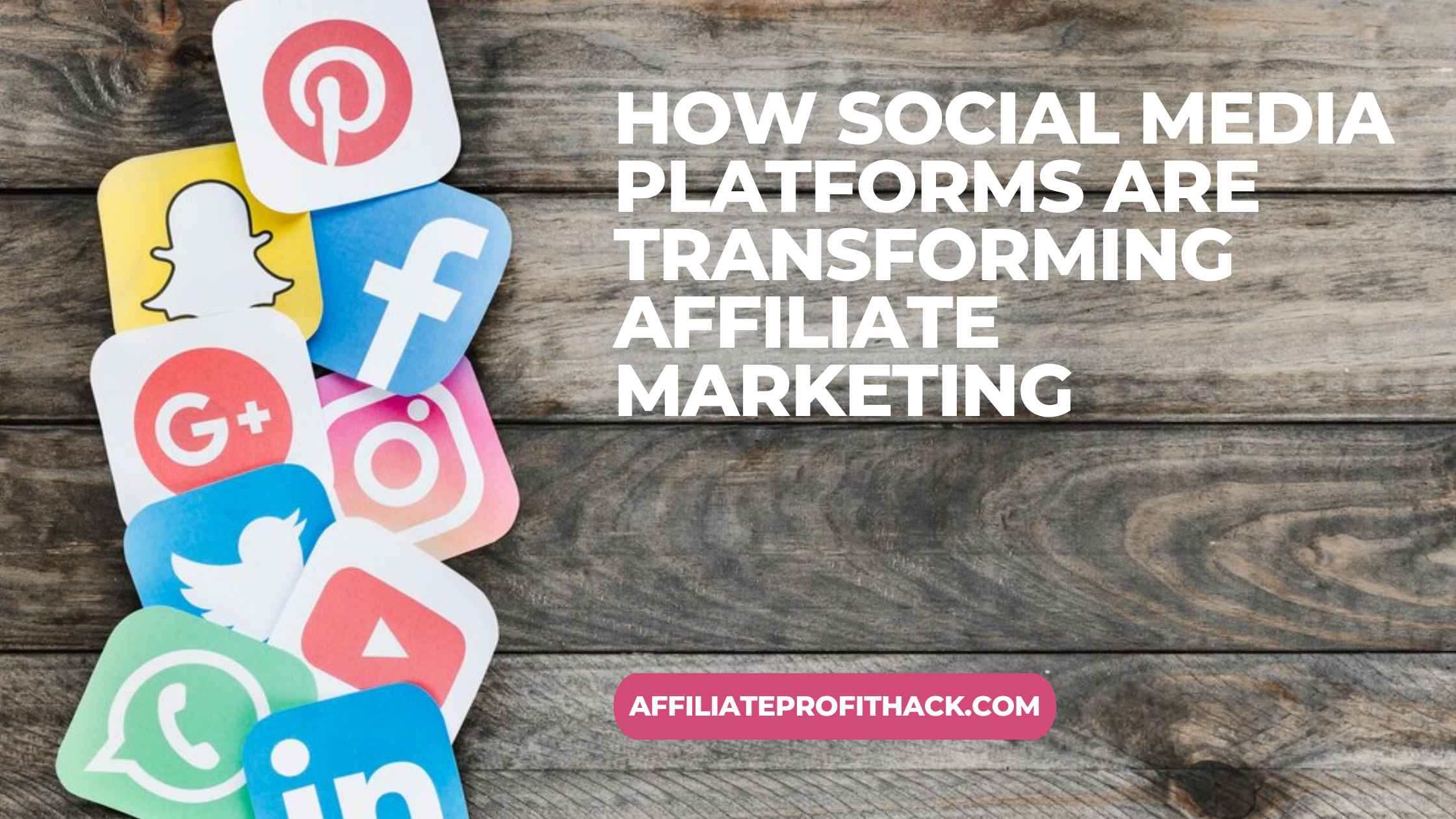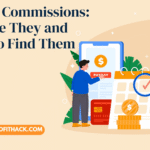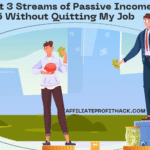Welcome to my article “How Social Media Platforms Are Transforming Affiliate Marketing”.
Affiliate marketing has come a long way from the days of simply pasting banners on a website and hoping for the best. Today, it’s all about going where the audience lives—and let’s be honest, most of us now live on social media. Whether it’s mindlessly scrolling through TikTok at 2 AM, double-tapping Instagram posts of avocado toast, or arguing with strangers on Twitter (I mean, X?), social media platforms have become the bustling marketplaces of the digital age.
But here’s the kicker: not all platforms are created equal, and not every strategy works everywhere. While TikTok might be the go-to for viral trends, Instagram is still king for lifestyle aesthetics, and Facebook… well, it’s probably great for selling kitchen gadgets to your aunt. In this blog, we’ll dive into how social media is turning the affiliate marketing world on its head, with insights, tips, and maybe a chuckle or two. Let’s get scrolling.
My Best Recommended & Proven Way to Make $100-$300 Daily – Watch This FREE Video to START >>>

The Intersection of Social Media and Affiliate Marketing
Picture this: you’re scrolling through Instagram, and your favorite influencer is raving about a gadget that claims to fold your laundry, brew your coffee, and maybe even babysit your kids. Intrigued, you click the conveniently placed affiliate link in their bio. Boom! You’ve just stepped into the intersection of social media and affiliate marketing, where entertainment meets persuasion and shopping is just a tap away.
Social media has revolutionized how people discover products. Instead of wandering through a mall, consumers now stumble upon their next purchase while watching cute dog videos or catching up on the latest TikTok dance trends. For affiliate marketers, this is a goldmine. Social platforms provide an endless stream of potential buyers who are actively engaging with content—and let’s be honest, social media is the ultimate stage for a well-executed sales pitch wrapped in relatable humor or jaw-dropping aesthetics.
But the beauty of this intersection goes beyond just visibility. Social media’s unique ability to blend storytelling with data-driven targeting is a game-changer. Algorithms ensure that your promoted hiking boots don’t show up in front of someone who spends their weekends binge-watching reality TV in bed (unless they’re planning a very ambitious New Year’s resolution). This precision targeting not only saves marketers time and money but also creates a more personalized shopping experience for consumers. Win-win, right?
Let’s not forget the influence of, well, influencers. These social media stars have become the poster children of affiliate marketing, bridging the gap between brands and their audiences with a touch of authenticity—or at least the appearance of it. Whether it’s a beauty blogger showing off the latest skincare line or a gamer reviewing a high-tech headset, influencers wield the power to convert followers into buyers faster than you can say “limited-time discount code.”
In this brave new world, affiliate marketing is no longer confined to static blogs or website banners. It’s alive, dynamic, and thriving on the ever-evolving landscape of social media. Ready to explore how these platforms are flipping the script on affiliate marketing? Let’s dive in.
The Rise of Influencer-Driven Affiliate Marketing
Influencers: the modern-day superheroes of social media. No capes, but they do wield ring lights, high-quality cameras, and an uncanny ability to convince you that your life is incomplete without a $40 water bottle. Influencer-driven affiliate marketing has exploded in recent years, and it’s easy to see why. People trust people more than they trust ads. And when your favorite lifestyle guru swears by a product, you’re more likely to believe them than a faceless banner ad screaming “BUY NOW!”
The genius of influencer-driven affiliate marketing lies in its relatability. Influencers don’t just show you a product—they show you how it fits into their lives (or their curated online personas). Whether it’s a makeup artist demonstrating the wonders of a viral foundation or a fitness guru raving about the protein powder that fuels their workouts, the message is clear: “If it works for me, it’ll work for you.” And let’s be honest, even if it doesn’t, you’re still left with an oddly satisfying unboxing video.
My Best Recommended & Proven Way to Make $100-$300 Daily – Watch This FREE Video to START >>>
Platforms like Instagram, TikTok, and YouTube are the epicenters of this movement. TikTok, with its short, snappy videos, is perfect for showcasing quick product demos or hilarious “before and after” shots. Instagram Stories and Reels bring swipe-up links and shoppable posts that make purchasing ridiculously easy—because why wait when you can buy that sweater while still in your pajamas? YouTube, on the other hand, offers long-form content like product reviews, tutorials, and “hauls,” giving audiences in-depth insights into products before they decide to click that affiliate link.
And here’s the kicker: micro and nano-influencers are stealing the spotlight. These smaller creators, with followings ranging from a few thousand to tens of thousands, often have higher engagement rates and stronger connections with their audiences. They’re not just promoting products; they’re starting conversations. For affiliate marketers, this means tapping into loyal, niche communities where trust is the real currency.
So, what’s next for influencer-driven affiliate marketing? As social media platforms continue to innovate with features like live shopping and in-app purchases, influencers are poised to become even more powerful. And while the rest of us are busy being influenced, affiliate marketers are laughing all the way to the bank. Well played, influencers. Well played.
Advanced Targeting with Social Media Algorithms
If social media platforms were chefs, their algorithms would be the secret sauce that keeps us coming back for more. These algorithms are constantly working behind the scenes, serving up content so perfectly tailored to our interests that it’s almost creepy. (How did Instagram know I needed a heated blanket for my dog?) For affiliate marketers, this level of precision is nothing short of a jackpot.
Social media algorithms are designed to keep users engaged, and they do so by learning everything about us—our likes, dislikes, hobbies, and even that one weird phase where we were into DIY soap-making videos. This treasure trove of data is what allows affiliate marketers to target their audience with laser-like accuracy. Instead of shouting into the void, marketers can reach users who are genuinely interested in what they’re selling. It’s like matchmaking, but instead of finding your soulmate, you’re finding your perfect pair of noise-canceling headphones.
Paid advertising takes this targeting to the next level. Platforms like Facebook and Instagram Ads let marketers filter audiences by age, location, interests, behavior, and more. Want to promote hiking gear to adventure enthusiasts aged 25-35 in Bangalore? Done. Selling luxury skincare to women who’ve recently searched for “anti-aging tips”? Easy. The level of granularity is so precise that it feels like the algorithm knows you better than you know yourself. (Spoiler: it probably does.)
And it’s not just paid ads—organic reach benefits from these algorithms too. When you post content that resonates with your target audience, the algorithm rewards you by showing it to more people who are likely to engage. This is why your affiliate posts need to be more than just “Buy this now!” They need to entertain, inform, or solve a problem. The more value you provide, the more the algorithm will help you out.
Of course, with great power comes great responsibility. Overloading your audience with overly promotional content can make the algorithm turn on you faster than a cat on a laser pointer. The key is balance: creating engaging, authentic content while strategically incorporating affiliate links. Do it right, and the algorithm becomes your best friend, guiding your posts to the perfect audience like a digital Sherpa.
So, the next time you see an ad for something you were just thinking about, don’t freak out. Just remember, that’s the magic of advanced targeting at work—and for affiliate marketers, it’s the gift that keeps on giving.
Short-Form Content and Its Impact on Affiliate Marketing
Short-form content is the espresso shot of the digital world: quick, strong, and guaranteed to wake up your audience. Whether it’s a snappy TikTok video, an engaging Instagram Reel, or a punchy YouTube Short, this bite-sized content has taken over social media—and affiliate marketers are riding the wave like pros at a surf competition.
Why is short-form content so impactful? For starters, people’s attention spans are shorter than ever (thanks, internet). A 30-second clip that makes them laugh, teaches them something new, or shows off a product in action can be far more effective than a 10-minute video or a long blog post. It’s instant gratification meets strategic marketing—a match made in social media heaven.
My Best Recommended & Proven Way to Make $100-$300 Daily – Watch This FREE Video to START >>>
For affiliate marketers, short-form content is a goldmine. Imagine a creator showing off the “magic” of a cleaning product in a TikTok that gets millions of views. Within seconds, viewers are hooked, entertained, and clicking on that affiliate link faster than you can say “add to cart.” The same goes for Instagram Reels, where marketers can showcase products in creative ways, from unboxings and demos to quirky “how it started vs. how it’s going” transformations. The magic lies in how these platforms seamlessly integrate shoppable links, turning curiosity into conversions with just one tap.
Another reason short-form content works so well is its shareability. Think about it: how many times have you sent a friend a hilarious or useful TikTok, only to find yourself both buying the exact gadget featured in it an hour later? These viral moments create a ripple effect, spreading affiliate links far beyond the creator’s immediate audience. It’s the digital equivalent of word-of-mouth marketing, but way faster and with fewer awkward pauses.
But let’s not forget the creative challenge short-form content brings: you have mere seconds to grab attention and deliver your message. This forces affiliate marketers to get, well, creative. It’s not enough to simply mention a product—you have to tell a story, spark curiosity, or make people laugh. The goal is to stand out in a never-ending scroll of pet videos, dance trends, and viral memes.
So, what’s the verdict? Short-form content isn’t just a trend—it’s a revolution in how affiliate marketing connects with audiences. It’s fast, fun, and highly effective, making it a must-have tool in every affiliate marketer’s arsenal. And let’s be real, if a 15-second video can sell a glow-in-the-dark water bottle or a self-stirring mug, imagine what it could do for your next affiliate campaign.
Social Media Shopping and Affiliate Integration
Gone are the days when social media was just about liking cat memes or sharing vacation photos to make your friends jealous. Today, it’s a full-blown shopping mall, complete with virtual storefronts, checkout counters, and yes, impulse buys you didn’t even know you needed. Enter social media shopping—a game-changer that has revolutionized affiliate marketing by turning casual scrolling into full-fledged shopping sprees.
At the heart of this transformation are features like Instagram Shops, TikTok Shop, and Pinterest’s “Shop the Look” pins. These tools make it ridiculously easy for users to discover, browse, and buy products without ever leaving the app. And for affiliate marketers, it’s like finding the Holy Grail. Instead of relying on clunky redirects to external websites, marketers can now embed their affiliate links directly into these seamless shopping experiences. It’s the digital equivalent of putting a checkout line right next to the candy aisle.
But it doesn’t stop there. Social media platforms have taken things up a notch with live shopping events. Picture this: a charismatic influencer goes live on TikTok to rave about a skincare product, demonstrates its magical results in real time, and drops an affiliate link in the chat. Boom! Hundreds of viewers click, and sales start rolling in before the live ends. It’s like a modern-day QVC but with Gen Z vibes and way better dance moves.
What makes social media shopping so effective is its integration with algorithm-driven targeting. When a user’s feed is filled with products that align perfectly with their tastes (thanks, data!), they’re far more likely to make a purchase. Pair this with authentic influencer endorsements or creative affiliate campaigns, and you’ve got a recipe for conversions that would make any marketer proud.
And let’s not forget the power of shoppable posts. These sneaky little gems let marketers embed affiliate links directly into visually appealing content. Whether it’s a stunning flat lay of a new gadget or a styled outfit post, users can tap, shop, and swipe their credit cards in one smooth motion. It’s so effortless that even the most frugal shoppers don’t stand a chance.
So, what does this mean for affiliate marketers? It’s time to embrace the future. Social media shopping is no longer just an add-on; it’s a must-have strategy. Whether you’re leveraging Instagram’s sleek shopping interface, experimenting with TikTok’s vibrant shop features, or diving into live events, the opportunities are endless. And as these platforms continue to innovate, one thing’s for sure: the checkout button has never been closer—or more irresistible.
Conclusion
Affiliate marketing isn’t what it used to be—and that’s a good thing. Thanks to the meteoric rise of social media, the entire game has been flipped on its head, giving marketers a treasure trove of new tools, strategies, and platforms to connect with audiences like never before. Whether it’s influencers casually recommending products in their daily vlogs, algorithms serving ads so relevant it’s borderline psychic, or shoppable posts that make buying as easy as double-tapping a photo, social media has transformed affiliate marketing into a dynamic, fast-paced, and highly effective industry.
But here’s the thing: it’s not enough to just jump on the bandwagon. To truly thrive in this new era, you need to stay ahead of the curve. The platforms, trends, and audience preferences are constantly evolving—today’s viral TikTok trend is tomorrow’s forgotten dance move. The key to success lies in creativity, adaptability, and a willingness to experiment. Test out new content formats, work with diverse influencers, and leverage every tool these platforms offer. And don’t forget to keep an eye on your analytics—because if the algorithm is going to spy on you, you might as well use it to your advantage.
My Best Recommended & Proven Way to Make $100-$300 Daily – Watch This FREE Video to START >>>
As we move forward, one thing is clear: social media isn’t just a place for funny memes and vacation selfies anymore. It’s where products are discovered, brands are built, and affiliate marketers make their mark. So, whether you’re just starting out or looking to scale your efforts, now is the time to embrace this transformation. Grab your phone, brainstorm some killer content ideas, and get ready to turn those affiliate links into serious profits. Because in the world of social media and affiliate marketing, the possibilities are as endless as your Instagram feed.
Thank you for reading my article “How Social Media Platforms Are Transforming Affiliate Marketing” till the end. Hope it helped you. See you with another article.










